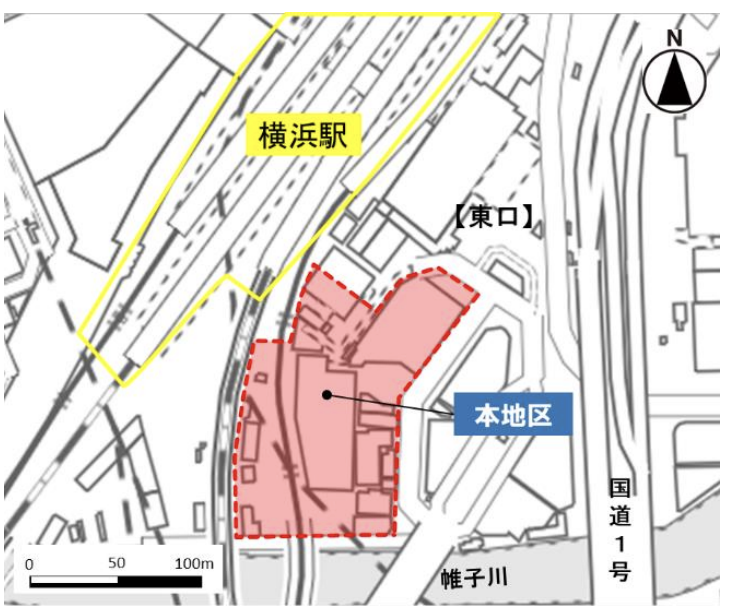For rental owners who are considering changing rental management companies, one of the most concerning issues is taking over therent obligation guarantee company.
In today's rental market, it is common to use a guarantee company to provide rent guarantees on behalf of a co-signer. However, many people may have questions about what will happen to existing guarantee contracts when changing management, whether there will be any impact on tenants, and whether there will be any additional costs.
In this article, INA & Associates, Inc. will explain in detail how to handle rent obligation guarantee companies when changing management companies, based on our many years of property management experience. We provide comprehensive information for owners, from the possibility of taking over to specific procedures, cost burdens, and practical advice for successful rental management.
We hope that by acquiring the appropriate knowledge, you can minimize the risks associated with changing management and realize better rental management.
Importance of Rent Obligation Guarantee Companies in Rental Management
Basic Role of Rent Obligation Guarantee Companies
A rent guarantee company plays an important role in replacing rent payments on behalf of the tenant when the tenant fails to pay rent on time. As an alternative to the traditional joint guarantor system, they have become an indispensable part of the modern rental market.
The main functions of a guarantee company are as follows. First, they provide replacement payment in the event of rent arrears. If the tenant is unable to pay the rent, the guarantee company pays the rent in place of the tenant and then collects it from the tenant. Next, the company acts as a reminder service provider. The burden on owners and management companies is greatly reduced because the guarantee company handles reminders and collections when delinquent payments occur.
Furthermore, the screening function is also an important element. Guarantee companies use their own screening criteria to evaluate the tenant's ability to pay and eliminate high-risk tenants in advance. This makes rental management safer for the owner.
Widespread Use of Guarantee Companies in Today's Rental Market
In recent years, the use of rent obligation guarantee companies has expanded rapidly in the rental market. According to a survey by the Ministry of Land, Infrastructure, Transport and Tourism, the use of guarantee companies in rental housing is increasing every year, and especially in urban areas, the use of a guarantee company is mandatory for over 80% of properties.
Behind this is a change in social structure. With the shift to nuclear families, an increasing number of tenants are finding it difficult to secure a joint guarantor. In addition, the psychological burden of asking relatives to act as guarantors is also increasing due to the aging of society.
By using a guarantee company, a system has been established that benefits both parties: the tenant can rent a rental unit without a joint guarantor, and the owner can reduce the risk of rent delinquency.
Relationship between Management Companies and Guarantee Companies
The relationship between a rental management company and a rent obligation guarantee company is an important element in rental management. In many cases, the management company forms a partnership with a specific guarantee company and requires tenants to join the designated guarantee company.
This partnership has multiple advantages. First, it streamlines procedures. By having the management company and guarantee company work together, everything from tenant screening to contracting procedures can proceed smoothly. Second, it facilitates information sharing. Information can be shared in real time on how to respond to delinquent payments and the status of tenants.
Some guarantee companies also offer rent collection agency services. In this case, tenants pay rent to the guarantee company, which then remits the amount to the management company after deducting the guarantee fee. This simultaneously streamlines rent collection operations and reduces the risk of nonpayment.
However, this close relationship often poses a challenge when changing management. This is because a change of management company may affect the existing guarantee contract.
Can a rent obligation guarantee company be taken over in a change of management?
Characteristics of cases that can be taken over
Whether or not it is possible to take over arent obligation guarantee company at the time of a change of management company depends largely on the size and policies of the guarantee company. In conclusion, it is a reality that there are both cases in which succession is possible and cases in which it is difficult.
| Type of Guarantee Company | Possibility of taking over | Characteristics | Complexity of procedures |
|---|---|---|---|
| Major independent guarantee company | High | Affiliated with multiple management companies | Relatively easy |
| Nationwide guarantee company | Expensive | Dedicated forms available | Standardized procedures |
| Guarantee company affiliated with management company | Moderate | Requires coordination among affiliates | Slightly complicated |
| Guarantee company affiliated with a consumer credit company | Low | Coordination with credit functions | Difficult |
| Small community-based guarantee company | Low | Strong ties to specific management companies | Difficult |
Some of the major rent liability guarantee companies are proactive in changing management companies. These companies provide a special form for the changeover procedure, allowing tenants to continue using the guarantee service after the change of management simply by proceeding with the prescribed procedures.
The greatest benefit of a possible takeover is a reduction in the burden on the tenants. In particular, if tenants are paying rent directly to the guarantee company, procedures such as changing the bank transfer address will no longer be necessary, thus avoiding confusion for the tenants. In addition, the resident's financial burden is also reduced because no new guarantee fees are incurred.
Cases in which it is difficult to take over and the reasons why
On the other hand, there are many cases where it is difficult to take over arent obligation guarantee company. The most typical example is a consumer credit guarantee company. These companies are affiliated with credit card companies and consumer credit companies, and are linked to services that refer to consumer credit information during the screening process and issue credit cards at the time of contract.
The reason why it is difficult for a consumer credit guarantee company to handle the takeover is the complexity of the system. Because guarantee contracts and credit functions are closely linked, it is often technically difficult to change systems in response to a change in management companies. In addition, legal regulations regarding credit sales operations also have an impact, requiring careful handling of contract changes.
Smaller guarantee companies are also often difficult to take over. These companies have strong ties to specific management companies and have a limited number of management companies under contract. If the company has no track record with the new management company, it will generally decline to take over, considering the time and cost involved in establishing a new partnership.
In the case of community-based guarantee companies, human resource constraints also have an impact. Since they do not have specialized departments and standardized procedures in place like large guarantee companies, it may be difficult to respond to individual needs.
Specific Flow of Takeover Procedures
This section describes the specific procedures to be taken over bya rent obligation guarantee company when it is possible. The procedure varies depending on the guarantee company, but the general flow is as follows.
First, the guarantor company is notified of the planned change from the current management company to the new management company. At this time, it is necessary to clearly inform them of the planned change date, detailed information about the new management company, and the reason for the change. Many guarantee companies will decide whether or not to take over upon receiving this notification.
Next, you will fill out a special change notification form provided by the guarantee company. This form includes the new management company's trade name, address, contact information, contact person information, and bank account information for transfers. It must also specify how rent will be collected after the change.
After the documents are submitted, the new management company will be screened by the guarantee company. During this examination, the new management company's credit standing, business performance, and financial condition will be verified. The examination period usually takes from one to two weeks, but varies depending on the guarantee company.
Once the review is complete and the transfer is approved, the formal changeover procedures are implemented. At this stage, the parties to the guarantee contract will be changed, the bank transfer address will be changed, and contact information will be updated.
Finally, the resident will be notified. The resident will be notified in writing of the change in management company and the continued use of the guarantee company. This notice will include important information such as contact information after the change, how rent will be paid, and what to do in the event of an emergency.
Key Points for Successful Takeover
There are several important points to consider for a successful handover of a rent guarantee company.
First, prior confirmation is essential. At the stage of considering a change of management, confirm that the guarantee company currently being used is compatible with a change of management company. This confirmation is important to do early on, as it will affect the selection of the new management company.
Second, consider the relationship with the guarantee company when selecting a new management company. If the new management company already has a track record of doing business with the current guarantee company, the handover is more likely to proceed smoothly. When selecting a management company, we recommend that you also check the affiliated guarantee companies.
Third, ensure that there is sufficient preparation time. The handover procedure requires a certain amount of time, and a sudden change may be difficult to handle. It is advisable to start consulting with the guarantee company at least one month in advance, counting backward from the scheduled date of the change of management company.
Fourth, carefully explain the change to the tenants. A change of management company may cause anxiety for tenants. It is important to clearly explain the continued use of the guarantee company and gain the understanding of the tenants. In particular, if there are any changes in rent payment methods or contact information, a detailed explanation is necessary.
What to do if the rent obligation guarantee company cannot be taken over
Contract with a new guarantee company
If the rent obligation guarantee company cannot be taken over, the most common solution is to change to a new guarantee company. In this method, a new contract is signed with a guarantee company affiliated with the new management company.
There are several important considerations when signing a contract with a new guarantee company. The first is a comparison of warranty coverage. The coverage, term, and rate of the guarantee may differ from the current contract, so a detailed comparison is necessary.
| Comparison Items | Points to check | Points to note |
|---|---|---|
| Guarantee fee rate | Comparison of initial guarantee fee and annual guarantee fee | Check the increase or decrease of the tenant's burden |
| Warranty Coverage | Coverage of rent, common expenses, restoration expenses, etc. | Confirmation of items not covered by the guarantee |
| Screening Criteria | Income criteria, level of credit check | Whether existing tenants can be re-examined |
| Renewal Procedures | Frequency of renewal and renewal fees | Long-term cost calculation |
| Reminder and collection methods | Speed and method of response to delinquent payments | Impact on the owner |
The most important issue in contracting with a new warranty company is the handling of existing tenants. When a new guarantee company is requested to join an existing tenant, another screening and guarantee fee payment will be required. This is a financial and psychological burden for the tenant, so careful handling is required.
In explaining the situation to tenants, it is important to clearly convey the necessity of the change. Emphasizing that a change in management company will enable you to provide better services and explaining the benefits to the tenants will make it easier to gain their understanding.
In addition, the owner should consider covering part or all of the warranty fee. This consideration may be particularly effective in retaining good tenants.
Switching to a joint guarantor system
Another option when changing the guarantor company is not feasible is to switch to a joint guarantor program. In this method, an individual co-signer replaces the guarantor company, thereby addressing the risk of rent delinquency.
There are both advantages and disadvantages to switching to a joint guarantor system. One advantage is that the tenant's financial burden is reduced by not having to pay a guarantee fee. It also avoids the risk of bankruptcy of the guarantee company and the risk of contract modification.
On the other hand, disadvantages are also important to consider. First, it may be difficult to secure a joint guarantor. In particular, it may be difficult to find a suitable co-signer for elderly people, foreigners, or singles.
Another issue is to check the ability to pay and credit status of the cosigner. Since there is no professional screening function like that of a guarantee company, the owner or management company must make its own determination.
In addition, the response when delinquency occurs can be complicated. Demanding the cosigner and legal procedures often require more time and effort than those handled by a guarantee company.
Continuation of management without a guarantee
A third option is to continue management without setting up either a guarantee company or a cosigner. This is the riskiest option, but may be effective under certain conditions.
Conditions under which management without a guarantee may be suitable include the following. First, the tenant has a very high credit score. A tenant with a long history of nonpayment and a stable income may be managed relatively safely without a guarantee.
Second, the rent level is relatively low. If the amount of loss in the event of delinquency is limited, it may be worth the risk compared to the cost of the guarantee fee.
Another option is to manage without a guarantee as a temporary measure for a short period of time, during which time an appropriate guarantee structure can be put in place.
However, managing without a guarantee carries significant risks. In the event of rent arrears, the owner is responsible for all losses. In addition, the owner or the management company must handle reminders and legal procedures directly to delinquent tenants.
Risk Mitigation Measures
Even if the rent obligation guarantee company cannot take over, it is possible to mitigate the risk through appropriate measures.
The first is to reinforce regular status checks of tenants. Changes in income status, family structure, and place of employment should be checked regularly to detect risks at an early stage.
Second, we should devise a method of paying rent. Introducing a system in which payments are made automatically, such as account transfer or credit card payment, will help prevent delinquent payments due to forgotten payments.
It is also important to clarify the procedures to be followed in the event of nonpayment. A system should be established in advance to ensure a prompt response, from the occurrence of delinquency to the demand for payment and legal procedures.
In addition, the use of rent guarantee insurance should be considered. This is a system whereby the owner pays insurance premiums and the insurance covers losses due to rent arrears. Compared to the use of a guarantee company, the cost is higher, but a reliable guarantee can be obtained.
Consideration of cost-effectiveness
When changing a guarantee company or choosing an alternative, a thorough examination of cost-effectiveness is necessary. It is important to quantify the costs and risks of each option and make the best decision.
In contracting with a new guarantee company, the initial cost (guarantee fee) and ongoing costs (annual guarantee fee) should be considered. It is also advisable to evaluate the change in risk due to differences in the guarantees in terms of monetary value.
In switching to a joint guarantor system, the effect of reduced guarantee fees and the increased risk of delinquency will be weighed against each other. It is important to quantitatively evaluate the risk based on past delinquency records and tenant attributes.
In managing without a guarantee, we will compare the effect of reduced guarantee fees with the full risk of delinquency. In this case, it is essential to assess risk based on worst-case scenarios.
Through these considerations, determining the most appropriate option for each property and tenant situation is the key to successful rental management.
Cost Burden and Points to Consider When Changing Management
Breakdown of Costs Associated with a Change of Guarantee Company
There are a variety of costs that may be incurred when changing rent obligation guarantee companies in conjunction with a change in management company. It is important to understand these costs in advance and plan an appropriate budget.
| Cost Item | Approximate amount | Person to bear the burden | Timing of accrual |
|---|---|---|---|
| New guarantee fee (initial) | 0.5 to 1.0 month's rent | Tenant or owner | At the time of contract |
| Annual guarantee fee | 0.3-0.5 months of rent | Tenant | Every year |
| Administration fee | 5,000 yen to 20,000 yen | Tenant or owner | At the time of contract |
| Screening fee | Free of charge~10,000 yen | Tenant | At the time of screening |
| Cancellation fee (former guarantee company) | Free~1 month's rent | Owner | At the time of cancellation |
| Commission to management company | 0.5 to 1.0 month's rent | Owner | At the time of contract |
The most significant cost burden is the new guarantee fee. When an existing tenant signs a contract with a new guarantee company, the initial guarantee fee must be paid. This fee is usually borne by the tenant, but if the change of management is for the owner's convenience, the owner should consider covering this cost.
Particular attention should be paid to the double payment of guarantee fees. If a contract is signed with a new guarantee company while the contract term of the old guarantee company remains, a situation may arise in which both guarantee fees are temporarily paid. It is important to agree in advance among the parties concerned on how to adjust in this case.
Legal Basis and Practical Treatment of Cost Burden
There are no clear legal provisions regarding the burden of costs associated with a change of guarantor. Therefore, it is generally determined by the contents of the contract and agreement between the parties concerned.
In practice, the reason for the change often determines who bears the costs. In the case of a change of management company for the owner's convenience, the owner generally bears the cost. On the other hand, if the change is due to the bankruptcy of the management company or a serious breach of contract, the tenant may be asked to bear the cost.
However, when asking tenants to bear the costs, it is essential to provide sufficient explanation and gain their understanding. Unilateral requests for cost sharing may risk deteriorating relations with tenants or even causing them to move out.
In order to retain good tenants, bearing the costs on the owner's side should be considered an important investment. Especially for long-term tenants and properties with high rent levels, the financial benefits of retaining tenants by bearing their expenses are significant.
Explanation to tenants and obtaining their consent
Changing rent guarantee companies is an important change that directly affects the lives of tenants. Therefore, a proper explanation and process for obtaining consent is essential.
The main points to be explained are as follows. First, the reason and need for the change. Clearly explain why the management company is being changed and why the guarantee company needs to be changed accordingly.
Next, detailed information about the new guarantee company. We will explain the details of the guarantee, guarantee fees, screening criteria, and renewal procedures, including any differences from the current contract.
The procedural flow and schedule are also important matters to be explained. Explain in detail what needs to be done by when and what procedures the resident should follow.
It is also important to be transparent about cost sharing. Clearly explain who is responsible for which costs and whether there will be additional cost burdens.
It is important to provide explanations in writing and to politely answer any questions that residents may have. In addition, holding explanatory meetings and providing opportunities for individual consultation will make it easier to gain the resident's understanding and cooperation.
Reviewing and updating the contract
A review and update of the lease agreement may be necessary in conjunction with a change in management company. In particular, detailed consideration should be given to clauses related to the guarantee company.
The main clauses that should be reviewed are as follows. First is the clause regarding the designation of a guarantee company. If a specific guarantee company is designated, it is necessary to update the name of the guarantee company after the change.
Next is a clause regarding the burden of guarantee fees. If there are any changes to the amount of the guarantee fee or who bears the fee, these should be reflected in the contract.
Clauses regarding changes in the guarantee company are also important. Clarifying the rules for procedures and cost burdens for future changes in the guarantee company will prevent problems.
Contracts are generally updated in the form of a memorandum of understanding or a change agreement. For important changes, it is advisable to obtain the signature and seal of the resident.
Advance Measures to Prevent Trouble
Sufficient preparation and measures in advance are important to prevent problems associated with changes in rent obligation guarantee companies.
First, information sharing among the parties concerned should be thorough. Share the details and schedule of the change among the owner, the old management company, the new management company, the guarantee company, and the tenants to prevent any discrepancies in perception.
Next, an emergency contact system should be in place. Clarify contact information and response procedures in the event of problems during the changeover period, and establish a system that can respond quickly.
In addition, attention should also be paid to rent payment during the change period. Changes in the payee or payment method may cause confusion among tenants. It is important to prevent payment errors through clear guidance and a confirmation system.
Another important measure is to avoid creating a void period in the warranty. Careful management is required to coordinate the timing of the end of the old guarantor's contract and the start of the new guarantor's contract to ensure that there is no break in the guarantee.
Management strategy from a long-term perspective
It is important to view the change ofmanagement and thechange of guarantee company not only as a short-term solution to a problem, but also as an opportunity to improve long-term rental management.
A new management structure may enable more efficient and profitable rental management. As for guarantee companies, contracting with a company that offers better terms and services may allow for risk reduction and cost savings at the same time.
It is also important to take this opportunity to review the relationship with tenants and establish a better communication system. Apologizing for any temporary inconvenience caused by the change and explaining efforts to improve services in the future can lead to increased resident satisfaction.
In addition, you should consider establishing a system to prepare for future changes. Standardizing the procedures for changing guarantee companies and creating a manual with the necessary documents and procedures will make future changes smoother.
From a long-term perspective, building relationships with multiple guarantee companies is also an effective strategy. Diversifying the risk of relying on a single guarantee company and establishing a system that allows the selection of the most appropriate guarantee company according to the attributes of the tenants and the characteristics of the property will lead to stable rental management.
Conclusion: Optimal measures that rental owners should take
Taking over arent guarantee company ina change of management is an important issue that cannot be avoided in modern rental management. Based on the information explained in this article, we summarize the optimal measures that rental owners should take.
First, gathering information and preparation in advance is the key to success. It is important to confirm early on whether the rent obligation guarantee company currently being used is compatible with a change of management company, and to take the relationship with the guarantee company into consideration when selecting a new management company.
If the company is able to take over, we will utilize a special procedure to ensure continued use. In this case, the burden on tenants will be minimized and a smooth transition will be possible. On the other hand, if it is difficult to take over the property, we will select the most appropriate method according to the characteristics of the property and the situation of the tenants, from the options of changing to a new guarantee company, switching to a joint guarantee system, or continuing to manage the property without a guarantee.
As for the cost burden, although there is no legal obligation, it should be considered as an important investment on the part of the owner to bear the burden of maintaining good tenants. Particularly, if the change of management is for the owner's convenience, consideration for the tenants is essential.
Explanation to tenants and obtaining their consent are essential to prevent problems and maintain good relations. It is important to provide a transparent and detailed explanation of the reason for the change, the details of the new guarantee company, the procedural flow, and the cost burden.
From a long-term perspective, consider this opportunity to improve rental management. Better management and warranty systems can simultaneously reduce risk and improve profitability.
Finally, it is also important to develop a system to prepare for future changes. Standardizing procedures, building relationships with multiple guarantee companies, and establishing an emergency response system will help build a foundation for stable rental management.
We sincerely hope that our appropriate knowledge and preparation will lead you to a successful change of management and better rental management.
Frequently Asked Questions
Q1. How long does it take to take over a rent obligation guarantee company?
A1. The time required to take over arent obligation guarantee company varies depending on the size and policies of the guarantee company, but generally ranges from two weeks to one month. If a major guarantee company has a dedicated procedure in place, the transfer can be completed in a relatively short period of time. However, if there is no track record with the new management company or if an examination is required, a longer period of time may be required. We recommend that you start the procedure at least one month prior to the scheduled change of management.
Q2. Is there any risk of tenants moving out due to a change in the guarantee company?
A2. There is definitely a risk of tenants moving out due to a change in the guarantee company. In particular, if the tenant has to pay a new guarantee fee or undergo a new screening process, this may be a burden for the tenant and become a factor in the tenant moving out. To mitigate this risk, it is effective to carefully explain the need for the change and to bear the cost on the owner's side whenever possible. Also, explaining the benefits of the change (better service, quicker response, etc.) will make it easier to gain the tenant's understanding.
Q3: Is it possible to change from a consumer credit guarantee company to an independent guarantee company?
A3. Although it is technically possible to change from a consumer credit guarantee company to an independent guarantee company, it is often difficult to take over. In general, consumer credit guarantee companies do not support transfer to other companies because of the complex systems they have built in conjunction with their credit functions. In this case, it is necessary to re-sign a contract with a new independent guarantee company from scratch. Tenants will be required to undergo a new screening process and pay a new guarantee fee, so it is important to provide sufficient explanation and consideration.
Q4: Is it necessary to change the guarantee company at the same time as changing the management company?
A4. Whether or not a change of guarantee company is required when changing management companies depends on the policy of the current guarantee company and its relationship with the new management company. Most major guarantee companies support a change of management company and can continue to be used through the transfer procedure. However, smaller guarantee companies or guarantee companies with strong ties to a particular management company may need to be changed. We recommend that you first check with the current guarantee company to see if they can handle a change in management, and make a decision based on the results.
Q5. Is it realistic to manage a rental property without a guarantee company?
A5. Although it is legally possible to manage a rental property without a guarantee company, in reality it carries a high risk. If rent arrears occur, the owner is responsible for all losses, and the owner must also handle reminders and collections. However, if the tenant has very high creditworthiness, or if the rent level is low and the risk of loss is limited, it is worth considering this as a temporary measure. In the long term, having an appropriate guarantee system in place is important for stable rental management.

Daisuke Inazawa
Representative Director of INA&Associates Inc. Based in Osaka, Tokyo, and Kanagawa, he is engaged in real estate sales, leasing, and management. He provides services based on his extensive experience in the real estate industry. Based on the philosophy that “human resources are a company's most important asset,” he places great importance on human resource development. He continues to take on the challenge of creating sustainable corporate value.

.png)













